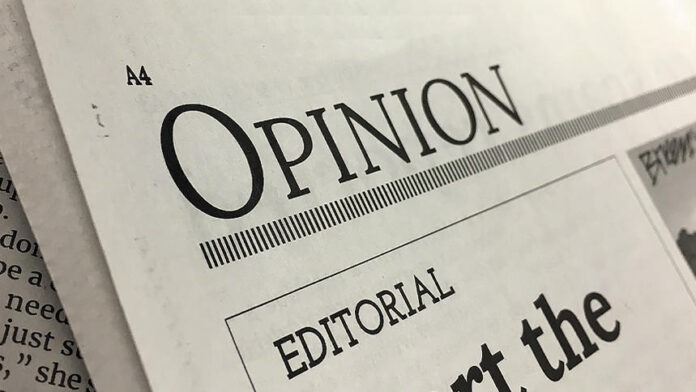All Opinion pieces and Letters to the Editor reflect ONLY the thoughts of the writer, and not those of the Stratford Crier or its Editorial Board.
An Act concerning the Protection of the Environment and the Development of Renewable Energy Sources and Associated Job Sectors.
Third Act Connecticut
We’re a community of Americans over sixty determined to change the world for the better. Third Act harnesses an unparalleled generational power to safeguard our climate and democracy.
Third Act Connecticut is a statewide movement focused on climate and democracy. We are organizing with a sense of urgency, a commitment to inclusion and justice, and a belief in the power of community.
Using our Life Experience, Skills and Resources to Create a More Helpful Legacy for our Children and Grandchildren

Important Elements of the Bill:
1. Greenhouse gas emissions (GHG) Reduction and Zero-Carbon Goals. Requires the Department of Energy and Environmental Protection (DEEP) to work closely with the Public Utility Regulatory Authority (PURA) to work together to strengthen emission goals and focus on progress reports.
2. JOBSCT Tax Rebate Program. To give a preference for investing in sustainable energy practices and in economic sectors like renewable energy, energy efficiency, zero-emission vehicles, and sustainable farming.
3. Establish a Connecticut Clean Energy Council. To advise on strategies and policies to further climate mitigation, clean energy, resilience, and sustainability efforts – the Council must develop a plan to transition workers away from fossil fuel-based jobs to those in clean energy and must submit an annual report of its work to the governor, Office of Policy and Management (OPM), and 4 legislative committees.
4. School Building Construction Grants. Adds air source and ground source heat pump projects to the list of school construction project grant applications that the Department of Administrative Services (DAS) can approve at any time.
5. Residential Heat Pump Systems Plan & Rebate Program. Requires the DEEP Commissioner to develop a plan for installing affordable heat pumps and report on this plan to the Environment and Energy and the Technology Committees by Jan 1, 2027.
6. State Buildings Energy Efficiency and Heating and Cooling Systems. DAS must develop a process for energy related repairs or construction of state buildings.
7. Nature-Based Solutions Initiative. Required DEEP to evaluate how to integrate and advance nature-based solution in programs that support climate change mitigation and adaptation, ecosystem resilience, and biodiversity. Then share this with the state.
8. Solar Canopy Strategic Plan. Requires PURA to report to the Energy and Technology Committee on a solar canopy strategy and program design.
9. Energy Costs Report. Requires DEEP to report to the Environment and Energy and Technology Committees on lowering energy costs, increasing community extreme weather resilience, and contributing to GHG emission reductions.
10. PURA proceeding for Utility-Scale Renewable Thermal Energy Networks. Requires PURA to establish a utility-scale renewable thermal energy network program, including a pilot component, working group, and study.
11. Renewable Thermal Energy Network Incentive Program. Requires Gas Companies to develop incentive programs for connecting customers to municipally owned renewable thermal energy networks.
12. Gas Efficiency and Active Demand Response. Expands existing procurement authorization to include active demand response projects and gas demand response projects.
13. Housing Environmental Improvement Revolving Loan and Grant Fund Revisions. Allows DEEP to enter into contracts with electrical distribution and gas companies to administer the fund, expands the pilot program to include single family homes and expand the list of qualifying projects; requires the funding to benefit Low-Income residents or prospective residents, rather than being prioritized for these projects.
14. Open Space and Watershed Land Acquisition (OSWA) Grant Program Revisions. Allows a portion of OSWA program funds to be used to mitigate wildfire risks on protected land and requires the DEEP Commissioner to set certain criteria for these grants.
15. Renter Utilization Study. Requires DEEP to study renters’ use of certain state energy efficiency and clean energy programs and report its findings and recommendations to the Environment and Energy and Technology Committees by July 1, 2026.
The bill is similar to the Massachusetts Climate Bill, that passed the legislature and was signed by Governor Healey last year. Similar to the Massachusetts bill, this bill offers a doable transition from fossil fuels to sustainable energy. It assigns specific reporting to the existing Connecticut agencies – DEEP, PURA, DAS, to be presented to the existing legislative committees – Environment and Energy, and Technology. These legislative committees will expect specific recommendations from those agencies for committee review and approval.
The bill is comprehensive in the sense that it ensures a public transparency, it addresses the key need for new energy job programs, and the needs and priorities of low-income residents.
Contact your state representative and senator and ask them to support CT Assembly bill HB 5004.
For additional information go to:




Against this just a way of taxpayers money. Another government overreach and a way to launder funds.